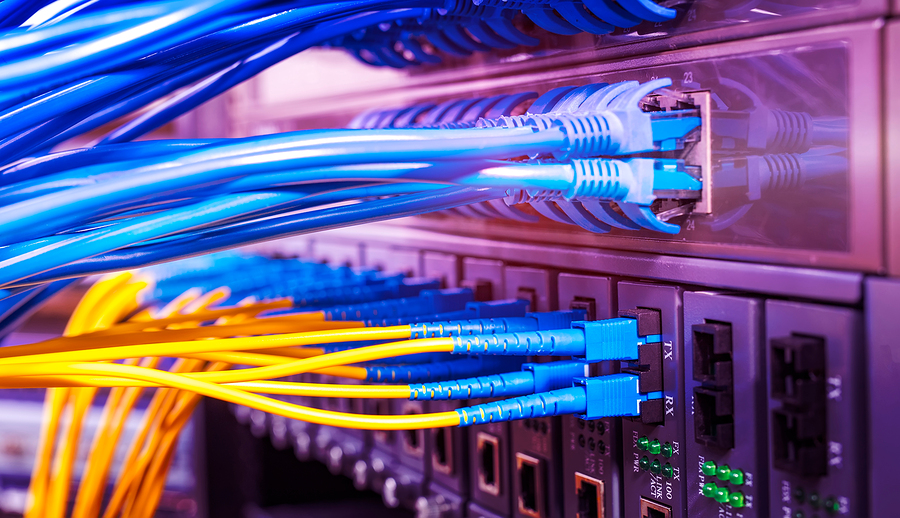Even if you don’t work in IT, knowing what a router and a switch are puts you in a better position for dealing with corporate network management. What does a Juniper router do that a switch can’t? Which device will fulfill the needs of your business?
Both routers and switches are networking devices that connect computers, networks, and other devices together. A switch and a router are sometimes combined in a single device, but there are important distinctions between the two regarding core functionality.
Routers
If you have a Juniper router installed, its job is to deliver data packets from one network point to another. That is, it decides where to send those data packets first.
Routers store information about other routers in their networks and the conditions each router has. It then processes this information to find the best way for the data packets to get through the network to the destination. The most efficient path minimizes travel time and cost.
Switches
A switch, much like a router, connects computers in a network. In contrast, switches tend to have multiple ports for managing the flow of signals and can add new addresses for new destinations on the fly.
Once data is received at a switch port, that data is forwarded through a stored MAC address. If there is no given destination, the switch sends the data out to all the ports and waits for the correct port to respond. It then remembers the new MAC address.
Understanding the Differences
So should you get a Juniper router or a switch? In a nutshell, these are the major differences between the two networking devices.
• Routers can connect devices located in different networks. Switches are confined to only computers in the same network.
• Routers use IP addresses whereas switches use MAC addresses for finding the destination for a data packet.
• Routers are “smarter” in the sense they use optimization algorithms for determining the best path for a data packet through the network.
• Switches must be wired, but routers have the option of going wireless.
• Switches are set and forget. Routers have their own operating system and need to be configured before use.
Netcon Solutions | Juniper Routers | Toronto | GTA
Get your Juniper routers, Cisco switches, and other networking paraphernalia from Netcon Solutions if you want competitive prices for refurbished goods. We have an extensive catalogue of used and refurbished networking equipment that is guaranteed to satisfy all of your networking needs.
Don’t think “used” necessarily means risky. Our team of experienced technicians are so confident in our products that we offer one-year warranties on all sales and are ready to provide top-end customer service when you need it most. Contact us today. We also offer additional support should you need it.
Do you have questions? Feel free to contact a member of the Netcon Solutions team today.
• Routers and switches both serve as connections between different devices in networks. They are essential in the communications of modern businesses, as they improve efficiency, costs, security, and customer service.
• Routers, however, can connect devices in different networks, use IP addresses rather than MAC addresses, use path optimization for delivering data, and come with configurable operating systems.
• Looking for Juniper routers, IBM servers, Cisco switches, or other networking-related business products? Give us a call at Netcon Solutions if you do business in the Toronto area.

